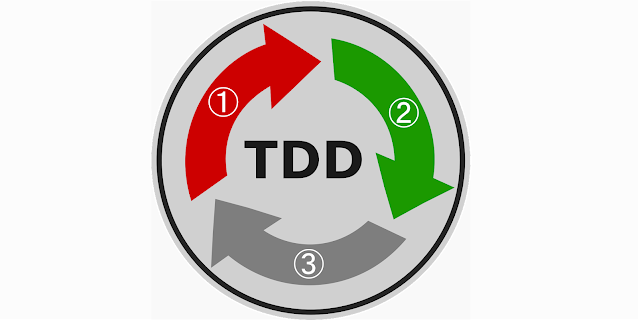With a sufficient number of users of an API,(From https://www.hyrumslaw.com/)
it does not matter what you promise in the contract:
all observable behaviors of your system
will be depended on by somebody.
Hyrum's Law
2023-05-13
Hyrum's Law
2023-04-23
Notable severely down-voted answers of mine on Stack Exchange
Among the answers that I have given to thousands of different questions on stackoverflow.com and softwareengineering.stackexchange.com, some have been vehemently down-voted.
Sometimes I make mistakes; when that is the case, I delete my answer; however, in other cases, the down-votes represent opinon which is in disagreement with my opinion, and in those cases I let my down-voted answers be, since I stand by my own convictions.
I suppose that this is the price you has to pay for: a) having your own opinions; and b) daring to voice them: there will always be some folks who will take offense.
Here is a list of my severely down-voted answers, so that you too can take offense and down-vote them even further:
Stack Overflow: api design - Which HTTP code is most suitable for when an endpoint is "full"?
Software Engineering: api design - Should a REST API return a 500 Internal Server Error to indicate that a query references an object that does not exist?
Software Engineering: grammar - Does it make sense to use "ys" instead of "ies" in identifiers to ease find-and-replace functionality?
Software Engineering: java - Is it okay to have objects that cast themselves, even if it pollutes the API of their subclasses?
2023-03-21
Trees of Eternity

This band has been haunting me for the past days. I feel compelled to write about it. This post will be completely different from the kind of posts you normally see on this blog.
While going through some random playlist on YouTube I stumbled upon this band that I immediately took a liking to, which is something that does not happen often. When I tried to find out a bit more information about them, what I discovered wrecked me.
2023-03-15
[SOLVED] Windows: Sound becomes distorted after 1 second of playback
So today I started encountering a very weird audio issue: When I play music, it sounds normal in the beginning, but then after about a second the sound gets distorted, as if it is muffled, or as if it is undergoing severe lossy compression. If I stop and resume the music, it goes through the same.
Normally I would know what to do in this situation, but as the years pass Microsoft keeps changing Windows, in the direction of making them dumber and dumber, so in Windows 10 I cannot find the old sound options dialog that I used to use to fix this problem.
Looking around the interwebz for a solution was not easy, so I decided to document the solution that I found. If you are a power user, you can skim through the text and only look at the words in bold-italics.
- Type Win+R and type mmsys.cpl. This will bring up the good old sound options, which Microsoft recently made inaccessible by any means other than this magical incantation, because obviously, nobody should ever want to fix any sound problems, because obviously, Windows has no sound problems.
- In the Playback tab, locate your Speakers. If you are playing music at that moment, they are easy to locate from the live volume meter right next to them.
- Select Properties on your speakers. (Not Configure, but Properties.) This should open a Speakers Properties dialog.
- On the Speaker Properties dialog, select the Advanced tab.
- Near the bottom of the Advanced tab there is an Enable Fucked Up Sound checkbox, which is actually labelled Enable Enhancements. (Euphemism has always been Microsoft's forte.)
- Uncheck that checkbox; you are done.
Afterword
I probably started experiencing this problem right after pairing a new bluetooth sound device. Apparently when Windows detects a new sound device it sets some things up for it, and while doing that it entirely arbitrarily also goes and resets some settings for existing devices, e.g. it enables this "Enhancements" setting for my existing speakers.
2023-02-21
A few good reads from Simplethread
I found them at a place called Simplethread while randomly browsing.
I thought I'd post links here for posterity.
Taming Names in Software Development by Joseph Glass (2022)
https://www.simplethread.com/taming-names-in-software-development
Agile at 20: The Failed Rebellion by Al Tenhundfeld (2021)
https://www.simplethread.com/agile-at-20-the-failed-rebellion
20 Things I’ve Learned in my 20 Years as a Software Engineer by Justin Etheredge (2021)
https://www.simplethread.com/20-things-ive-learned-in-my-20-years-as-a-software-engineer
2023-01-18
Debating with other Software Engineers

Stackoverflow and the whole Stackexchange network is good for asking very narrowly-scoped questions that can receive objective and preferably authoritative answers that cite documentation or definitions. Any kind of question which is subject of opinion, or liable to elicit debate, is off-topic there. This means that stackoverflow is only good for asking strictly technical questions, and there is an upper limit on how valuable this can be. Sure it can be very helpful when you are trying to solve a specific technical problem, but in the grand scheme of things, it is irrelevant; from a philosophical point of view, it is trivial.
I have been looking for ways to discuss with other software engineers (preferably experts) issues that are related to software engineering but are in fact very much subject of opinion. These are the interesting questions. I do of course already have my own opinions, which tend to either deviate or be diametrically opposite from the prevailing industry trends, so it would be very useful to me to debate these issues with others to see what they have to say. Clearly, either I am wrong, or the entire industry is wrong; wouldn't it be nice if we could debate this and have it settled?
To this effect, I decided to give a few forums a try, to see if it is possible to have debates in any of them. As it turns out, there seem to be very few options available, and things are rather quiet in each one of them; most people seem to be doing nothing but consuming content generated by influencers instead of participating in discussions. In this post I am listing my findings so far. I will be amending it as I gather more information.
2023-01-16
Definition: Collaborator

I have been coming across the term collaborator in software literature, and I have been using it too in my own writings, but without having seen it defined. I tried searching for its definition, but could not find any. In UML the term collaboration is vaguely described, but not the term collaborator. After asking on Software Engineering Stack Exchange I was pointed to what is in almost all certainty the original definition, but it turns out that it is very old, and slightly problematic, so I thought I should provide a modern definition here, at the very least for use in my own writings.
Here it goes:
A collaborator is a component invoked by another component to do a job.
(And since the context is software, these are, of course, software components.)
Origin of the term
2023-01-15
If you are using mock objects you are doing it wrong.

Abstract:
The practice of using Mock Objects in automated software testing is examined from a critical point of view and found to be highly problematic. Opinions of some well known industry speakers are cited. The supposed benefits of Mock Objects are shown to be either no real benefits, or achievable via alternative means.
2023-01-08
Collaboration Monitoring

Abstract:
An automated software testing technique is presented which solves the fragile test problem of white-box testing by allowing us to ensure that the component-under-test interacts with its collaborators according to our expectations without having to stipulate our expectations as test code, without having the tests fail each time our expectations change, and without having to go fixing test code each time this happens.
2022-12-27
On Test-Driven Development (TDD)

Let me get one thing out of the way first: I am open to Test-Driven Development (TDD). I am not currently practicing it, because when I gave it a try some time ago it did not seem to work for me, but I do not have any objections to it in principle, so I might give it another try in the future. Let us just say that it was not love at first sight, but then again some relationships do take some time to warm up.
Having said that, let me now express a few reasons why I am skeptical of TDD. The previous paragraph should have established that I am not trashing TDD, I am just expressing some reservations.
